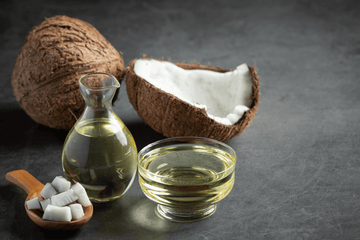Introduction:
Sunflower oil is a staple in kitchens worldwide, and for good reason. Its light, delicate flavor and high smoke point make it an excellent choice for a variety of cooking methods, from frying to salad dressings. But the benefits of sunflower oil extend far beyond its culinary uses. Packed with essential nutrients, sunflower oil is a heart-healthy option that can also enhance your skin’s health, making it a versatile and beneficial addition to your pantry.
Rich in Vitamin E:
One of the most notable benefits of sunflower oil is its high vitamin E content. Vitamin E is a powerful antioxidant that helps protect the body’s cells from oxidative stress, which can lead to chronic diseases like heart disease and cancer. Moreover, vitamin E is essential for maintaining healthy skin, as it helps to protect the skin from environmental damage and supports the healing process of skin tissues. Incorporating sunflower oil into your diet is an easy way to boost your intake of this vital nutrient, supporting both internal and external health.
Healthy Fats for Balanced Cholesterol:
Sunflower oil is rich in unsaturated fats, particularly polyunsaturated and monounsaturated fats. These healthy fats are known to help reduce levels of LDL (bad) cholesterol and increase levels of HDL (good) cholesterol, promoting a healthier heart. Maintaining balanced cholesterol levels is crucial for preventing heart disease and other cardiovascular issues. By using sunflower oil in your cooking, you’re not only enhancing the flavor of your food but also taking steps to protect your cardiovascular health.
Versatile Uses in the Kitchen:
The mild flavor and high smoke point of sunflower oil make it incredibly versatile in the kitchen. Whether you’re frying, roasting, or using it in a salad dressing, sunflower oil performs well across various cooking methods. Its lightness allows the flavors of other ingredients to shine, making it an excellent choice for dishes where you want to preserve the natural taste of the food. Additionally, because sunflower oil is less likely to oxidize at high temperatures, it’s a healthier choice for cooking at higher heats.
Conclusion:
Sunflower oil is more than just a cooking oil; it’s a nutritional powerhouse that offers numerous health benefits. From its high vitamin E content to its heart-healthy fats, sunflower oil supports overall well-being while enhancing the flavor of your meals. By incorporating sunflower oil into your kitchen, you’re making a choice that benefits both your health and your culinary creations.
3. "The Power of Coconut Oil: More Than Just a Cooking Ingredient"
Introduction:
Coconut oil has seen a surge in popularity over recent years, and it’s not hard to see why. This versatile oil, extracted from the meat of mature coconuts, is used in everything from cooking to skincare and beyond. While it has long been a staple in tropical regions, coconut oil is now a beloved ingredient worldwide, praised for its unique flavor and numerous health benefits. But what makes coconut oil stand out is its impressive range of uses and the positive impact it can have on both your diet and your overall wellness.
Boosts Metabolism and Supports Weight Management:
One of the key health benefits of coconut oil is its ability to support metabolism and aid in weight management. Coconut oil is rich in medium-chain triglycerides (MCTs), a type of fat that is metabolized differently from most other fats. MCTs are quickly absorbed and converted into energy by the liver, which can help boost metabolism and increase energy levels. Some studies suggest that MCTs can also promote feelings of fullness, making it easier to manage calorie intake and support weight loss efforts.
Skin and Hair Care:
Coconut oil isn’t just for cooking—it’s also a fantastic natural beauty product. Its moisturizing properties make it an excellent choice for skin and hair care. Applied to the skin, coconut oil can help to hydrate and protect against dryness, making it a popular ingredient in lotions and creams. It’s also known for its anti-inflammatory properties, which can help soothe irritated skin conditions such as eczema or psoriasis. For hair, coconut oil acts as a natural conditioner, helping to reduce protein loss and keep hair looking shiny and healthy. Whether used on its own or as part of a DIY beauty routine, coconut oil is a natural and effective solution for maintaining healthy skin and hair.
Immune System Support:
Coconut oil contains lauric acid, a type of fatty acid that has antimicrobial, antiviral, and antifungal properties. Lauric acid helps to strengthen the immune system by fighting off harmful pathogens. In addition, coconut oil’s anti-inflammatory effects can support overall immune function, helping to keep the body’s defenses strong. Regular consumption of coconut oil, whether in cooking or as a supplement, can provide these immune-boosting benefits, helping to protect against infections and promote overall health.
Conclusion:
Coconut oil is a true multi-purpose powerhouse that offers a wide range of benefits beyond the kitchen. From boosting metabolism and aiding in weight management to enhancing skin and hair health and supporting the immune system, coconut oil is a valuable addition to any wellness routine. By incorporating coconut oil into your diet and daily care, you’re tapping into the natural power of this versatile oil, benefiting both your body and mind.





